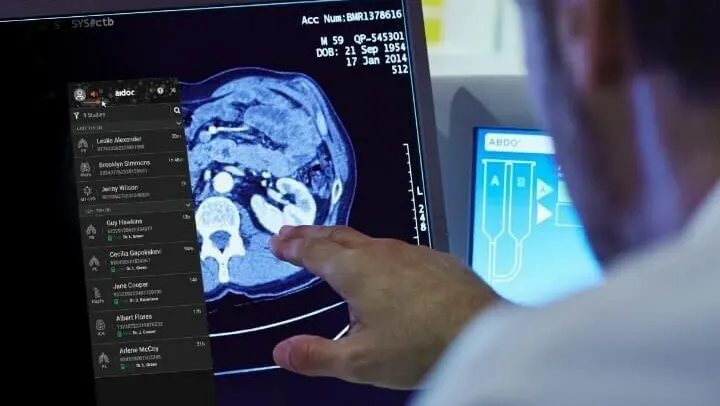Tools & Platforms
Proposed SANDBOX Act May Remove AI Oversight for Developers

Proposed federal legislation known as the SANDBOX Act, introduced on Wednesday, would grant AI developers regulatory lenience to launch new technologies — but some experts argue that the bill poses risks to consumers’ privacy.
Governments are increasingly exploring the sandbox model to allow for AI exploration in a secure environment, from Massachusetts to Delaware and beyond. In Utah, regulatory mitigation agreements with businesses allow for temporary relaxation of laws to develop new technologies, although data sharing, safety and compliance measures are in place.
The SANDBOX Act proposed this week by Sen. Ted Cruz — a.k.a. the Strengthening Artificial Intelligence Normalization and Diffusion by Oversight and eXperimentation Act — aims to do this at the federal level, establishing an AI regulatory sandbox program through the U.S. Office of Science and Technology Policy (OSTP).
Under this bill, AI deployers and developers would apply to modify or waive regulations, to more efficiently advance their work to launch new AI technologies. The bill would essentially offer select companies eligibility for two years of regulatory exemptions. OSTP would work across federal agencies to evaluate such requests, and the U.S. Congress would collect regular reports on how often rules were modified or waived to inform policymaking. The legislation aims to help position the U.S. as a leader in AI, which is a federal priority.
“[The SANDBOX Act] embraces our nation’s entrepreneurial spirit and gives AI developers the room to create while still mitigating any health or consumer risks,” Cruz said in a statement.
Stakeholders in responsible AI advancement, however, have raised concerns about the proposed legislation.
Public Citizen, a nonprofit consumer rights advocacy group, said that it “puts public safety on the chopping block in favor of corporate immunity.” The group released a statement from its accountability advocate J.B. Branch about the bill.
“Public safety should never be made optional, but that’s exactly what the SANDBOX Act does,” Branch said. “It guts basic consumer protections, lets companies skirt accountability, and treats Americans as test subjects.”
While proponents of regulatory amendments argue that AI companies are being restricted by these rules, Branch said that this is “simply not true,” citing company value assessments.
The CEO of the Alliance for Secure AI, Brendan Steinhauser, argued in a statement that Big Tech companies have repeatedly failed to make safety and harm prevention top priorities.
“The SANDBOX Act removes much-needed oversight as Big Tech refuses to remain transparent with the public about the risks of advanced AI,” he said, questioning who will be allowed to enter this sandbox environment and why.
Other groups, like the Information Technology Industry Council and the Abundance Institute, support this legislation.
This bill comes on the heels of much division about the future of AI regulation — and who holds the authority to implement safeguards.
There is bipartisan agreement among the public that both states and the federal government should be able to regulate AI. But the federal government has attempted to block states’ regulatory authority through a proposed moratorium in a recent budget bill, which was ultimately rejected by Congress; and more recently in the AI Action Plan, which could threaten states’ access to federal funding over their regulatory policies.
There is also bipartisan agreement on enacting some basic AI regulatory protections, such as a ban on lethal autonomous weapons and requiring AI programs to pass a government test before use.
“No federal legislation establishing broad regulatory authorities for the development or use of AI or prohibitions on AI has been enacted,” according to a June Congressional Research Service report.
Tools & Platforms
AI drives medtech investment in 2025

Artificial intelligence companies have been a focus of investment in the medical technology sector so far in 2025. Although the number of funding rounds decreased in the first half of the year, AI startups were favored by investors, according to a recent report by PitchBook. For example, earlier this month, Aidoc received $150 million in funding for an AI foundation model.
AI devices have also been the subject of recent acquisitions. In August, Tempus agreed to buy Paige, a company making digital pathology software, for $81 million. More recently, GE Healthcare built out its AI portfolio with the planned acquisition of brain MRI software firm Icometrix.
Read on for recent deals involving AI-enabled medical devices covered by MedTech Dive:
Tools & Platforms
This country is first in the world to make AI a minister, and its duties are fighting corruption

Albania is making an artificial intelligence-powered digital assistant named Diella its minister, the world’s first artificial intelligence system to serve as a government minister, tasked with overseeing public procurement to eliminate corruption. Albanian Prime Minister Edi Rama announced the appointment this week, promising the AI minister will make Albania “a country where public tenders are 100% free of corruption.Diella, meaning “sun” in Albanian, will manage all government contract decisions previously handled by human officials, ensuring complete transparency in public spending. The AI minister represents a radical shift from traditional governance, with Rama describing her as “the first cabinet member who isn’t physically present, but is virtually created by AI.”
Digital assistant becomes government decision-maker
Diella originally launched in January as an AI-powered virtual assistant on Albania’s e-Albania platform, helping citizens obtain government documents and services. Dressed in traditional Albanian attire, she has already processed 36,600 digital documents and provided nearly 1,000 services to users through voice commands and electronic stamps.The AI minister will now assume responsibility for evaluating and awarding all public tenders, with decisions transferred from human government officials in a “step-by-step” process. This represents a major shift in how governments worldwide might leverage artificial intelligence for governance.
Albanian public skeptical about AI minister’s success
Public procurement has long been plagued by corruption scandals in Albania, a Balkan nation experts describe as a hub for international money laundering from drug and weapons trafficking. Graft has reportedly reached the highest levels of government, complicating the country’s European Union accession goals.Rama aims to lead Albania into the EU by 2030, making anti-corruption efforts crucial for membership eligibility. However, the government provided no details about human oversight mechanisms or safeguards against potential AI manipulation. Public reaction remains mixed, with skeptical Facebook users commenting “Even Diella will be corrupted in Albania” and “Stealing will continue and Diella will be blamed.“The parliament is expected to vote on Rama’s fourth-term cabinet, including the AI minister, when it convenes Friday. Rama won his fourth consecutive term in May elections and has previously advocated for AI as an anti-corruption tool that eliminates bribes, threats, and conflicts of interest in government decision-making.
Tools & Platforms
Inside ‘Project Maverick,’ Dell’s Modernization Plan for the AI Future

There’s a top-secret project underway inside Dell.
Most of Dell’s employees aren’t meant to know about it, and those who do have signed NDAs and been told to keep communications about it to a minimum.
“Do not mention the Project Maverick name,” reads a NDA agreement seen by Business Insider.
But despite its secrecy, “Project Maverick,” as it is codenamed, isn’t a revolutionary piece of hardware or groundbreaking new technology. It’s Dell’s plan to overhaul the company’s operations and streamline all systems, data, and processes into a standardized platform.
Dell sees this transformation as “critical” for its AI strategy and future success, and the company has brought on a team of Deloitte consultants to help guide the project, internal documents about the project obtained by Business Insider show.
“The ‘game’ is changing — we must be far more nimble, decisive, and quick,” one internal document says. “What made us successful in the past won’t take us where we need to go.”
Documents seen by Business Insider include an onboarding presentation and a “guidance and resources” document uploaded to the project SharePoint, describing its scope and intended outcomes. Business Insider has also seen an NDA agreement sent to a Dell employee.
“While we’re not going to discuss the specifics of our internal processes, we prioritize innovation and service to support our team members, customers, and partners,” a Dell spokesperson told Business Insider.
‘Severely outdated’ systems
Project Maverick’s mission is to modernize the 41-year-old company’s vast IT sprawl, part of which Dell inherited during its acquisition of EMC in 2015, the second-largest technology merger ever.
According to the onboarding presentation, Dell’s operations run on roughly 4,700 applications, 70,000 servers, and more than 10,000 databases. That environment is “holding us back,” Dell said in the presentation, because it is so complex and expensive to maintain.
The tangle of systems forces staff into “manual processes and excessive reporting,” diverting energy away from pursuing innovation, Dell said.
One slide breaking down specific functions described Dell’s subscription capabilities as “severely outdated,” its customer resource management as a source of “confusion and inefficiency,” and its stock keeping units, or SKUs, as a driver of “go-to-market delays.”
Two Dell employees told Business Insider that the quality of the tools hampers their daily work. They asked to remain anonymous as they are not permitted to speak publicly, but Business Insider has verified their employment.
“Our tools suck. They’re very old,” said one employee, who has been with the company for more than 10 years.
“It is very hard for us to do our jobs in the Dell ecosystem as it is today,” said a second Dell employee. “Many systems don’t talk to each other, or only do a small piece of a broader process, requiring users to switch between several tools to complete a task.”
The push to consolidate tools is “long overdue,” the person added.
A third employee told Business Insider that while some tools “aren’t very intuitive,” they had few complaints about the ones they use daily.
What will change at Dell?
Dell has been working on Project Maverick since November 2024 and is set to launch for the client solutions group — the part of Dell that sells personal computers, monitors, and other hardware — in February 2026, in line with the start of Dell’s financial year, according to a project timeline seen by Business Insider.
An internal FAQ says there will be a single cutover day, after which most existing systems will be decommissioned. “Friday, it’s going to work one way, Monday, it’s going to work a different way,” explained the Dell employee who has been at the company for more than 10 years and who works on Project Maverick.
The company’s other key business line, the infrastructure solutions group — which provides servers, storage solutions, and other IT infrastructure — is scheduled to be updated in May 2026.
Tony Avelar/AP Images for Dell Inc.
Project Maverick will mean “less time on manual tasks, better data and insights for decision-making, faster response to customer needs, a more agile, competitive Dell,” according to the internal documents.
Changes will include creating a single global catalog, consistent lead times, and automated order management capabilities.
“This is a bold opportunity to deliver the benefits our teams have been asking for and a key enabler of Modern Dell,” the project documents say.
Alongside Project Maverick, major changes have been hitting other parts of Dell’s business. In the last two years, the company’s global head count has dropped by 25,000, marking a 19% decline in personnel.
In July, Jeff Clarke, the longtime vice chairman and COO, announced in an internal memo that he was stepping in to take on CSG’s “day-to-day leadership.”
CSG is the company’s biggest revenue driver, but the division’s revenue has declined for the last three years.
Dell announced another major leadership shift this week — Yvonne McGill, the chief financial officer, has stepped down after nearly 30 years at the company.
Transforming a legacy brand for the AI future
Michael Dell founded his eponymous brand in 1984, under the name PC’s Limited, and it quickly established itself as a trusted maker of office PCs.
Since 1992, Dell has been a Fortune 500 company — barring four years from 2014 when it was taken private — and Dell himself is the world’s 11th-richest man, according to the Bloomberg Billionaires Index.
The company has evolved into a major server and data storage provider, benefiting from the AI boom as demand surges for the infrastructure required to deploy the new technology.
But Project Maverick demonstrates how successful legacy brands must reorient all their operations for an AI-driven future.
Joe Depa, the global chief innovation officer at the Big Four professional services firm EY, told Business Insider that major transformations are “inevitable” as companies implement AI.
“Implementing AI isn’t about dropping a tool into old workflows — it requires rethinking processes, systems, and even business models through an ‘AI-first’ lens,” he said.
Minimizing your operational complexity is crucial because “siloed, manual systems can’t handle the scale, speed, or intelligence AI enables.”
Companies that re-architect their operating models around AI “will set the competitive standard,” Depa added.
Have a tip? Contact this reporter via email at pthompson@businessinsider.com or Signal at Polly_Thompson.89. Use a personal email address, a nonwork WiFi network, and a nonwork device; here’s our guide to sharing information securely.
-

 Business2 weeks ago
Business2 weeks agoThe Guardian view on Trump and the Fed: independence is no substitute for accountability | Editorial
-
Tools & Platforms1 month ago
Building Trust in Military AI Starts with Opening the Black Box – War on the Rocks
-

 Ethics & Policy2 months ago
Ethics & Policy2 months agoSDAIA Supports Saudi Arabia’s Leadership in Shaping Global AI Ethics, Policy, and Research – وكالة الأنباء السعودية
-

 Events & Conferences4 months ago
Events & Conferences4 months agoJourney to 1000 models: Scaling Instagram’s recommendation system
-

 Jobs & Careers2 months ago
Jobs & Careers2 months agoMumbai-based Perplexity Alternative Has 60k+ Users Without Funding
-

 Podcasts & Talks2 months ago
Podcasts & Talks2 months agoHappy 4th of July! 🎆 Made with Veo 3 in Gemini
-

 Education2 months ago
Education2 months agoVEX Robotics launches AI-powered classroom robotics system
-

 Education2 months ago
Education2 months agoMacron says UK and France have duty to tackle illegal migration ‘with humanity, solidarity and firmness’ – UK politics live | Politics
-

 Funding & Business2 months ago
Funding & Business2 months agoKayak and Expedia race to build AI travel agents that turn social posts into itineraries
-

 Podcasts & Talks2 months ago
Podcasts & Talks2 months agoOpenAI 🤝 @teamganassi


